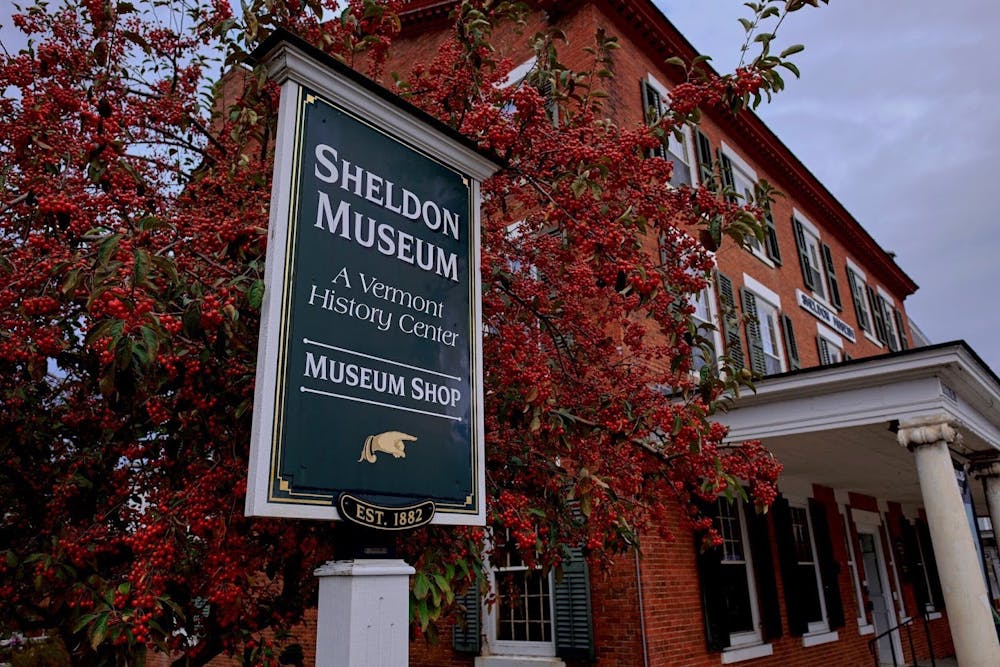The Henry Sheldon Museum received a grant in December for $650,000 from the Mellon Foundation, the largest supporter of arts and the humanities in the U.S. The money will allow the museum to increase its curatorial research, hire new staff members and expand the resources it offers to Middlebury as the oldest community museum in the country since its founding in 1882.
“The Mellon Foundation grant will allow the [Henry Sheldon Museum] to advance exhibition research and curatorial practices to include new stories and narratives in the permanent exhibits,” said Coco Moseley, the executive director of the Sheldon.
The Mellon Foundation is a philanthropic organization which focuses on supporting arts and culture, higher education, and the humanities. The foundation gives grants to institutions and individuals who align with the foundation's mission in promoting a richer, more inclusive understanding of American history.
However, it is not just the museum and its exhibits that will benefit from this grant, but also the Stewart-Swift Research Center, a component of the Sheldon which houses a collection of Vermont artifacts that is available to the community for a stronger understanding of Addison County’s history.
“The Museum welcomes visitors and researchers of all types, from students to authors to local history enthusiasts, to explore exhibits and the archival collection, hosts programming for all ages and provides opportunities for museum internships for high school and college students in our community,” Moseley said.
Julia Breckenridge ’25.5 has volunteered as a collections assistant with the museum and has also used its collections as a resource for class.
“The Sheldon has the potential to be a real asset to students,” Breckendridge said in an interview with The Campus. “I have loved working with the collections. From rehousing a penny-farthing bicycle to cataloging a spinning wheel, the Sheldon has learning opportunities to offer Middlebury students that they cannot find elsewhere.”
This is not the Mellon Foundation’s first foray into Vermont, or even Addison County. Last year Middlebury College received a $1.48 million grant from the non-profit to fund education on migrant justice in Vermont and 30 new Public Humanities Labs through the Axinn Center for the Humanities. The museum’s new grant will serve a different purpose within the wider community than the college’s funding, however.
“The grant will allow the HSM to expand its staff capacity, including hiring a 3-year post-doctoral position in Public History to work alongside staff and stakeholders to guide the Museum’s development of new permanent exhibitions and programming initiatives that invite community members and visitors to connect with our area’s history,” according to the Sheldon Museum’s press release.
Moseley explained that the museum founder “filled the museum with artifacts, art, documents, photographs, ephemera (like show tickets, stubs, and postcards) and more that now provide a glimpse into Vermont’s storied past,” a mission which she said will be aided by the Mellon Foundation’s grant.
The Henry Sheldon Museum showcases many artifacts from its namesake, which tell a story through everyday objects — or sometimes bizarre ones, such as a mummified house cat. Moseley said the museum is committed to representing the local history and providing a well-documented narrative of Addison County’s heritage.
This grant will be distributed over three years, allowing the museum to improve its exhibits and reimagine their role in the community as a 21st century museum. According to Moseley, changes to the exhibits aim to provide a more inclusive experience for the community by spotlighting different voices and stories from Vermont’s history.
“Small museums are almost always struggling to find the money to run, and they are so important,” Breckenridge said. “They hold the history of everyday lives, which is an extremely rich and underrated area.”
Editor’s Note: Senior Local Editor Mandy Berghela ’26 contributed reporting to this story.




